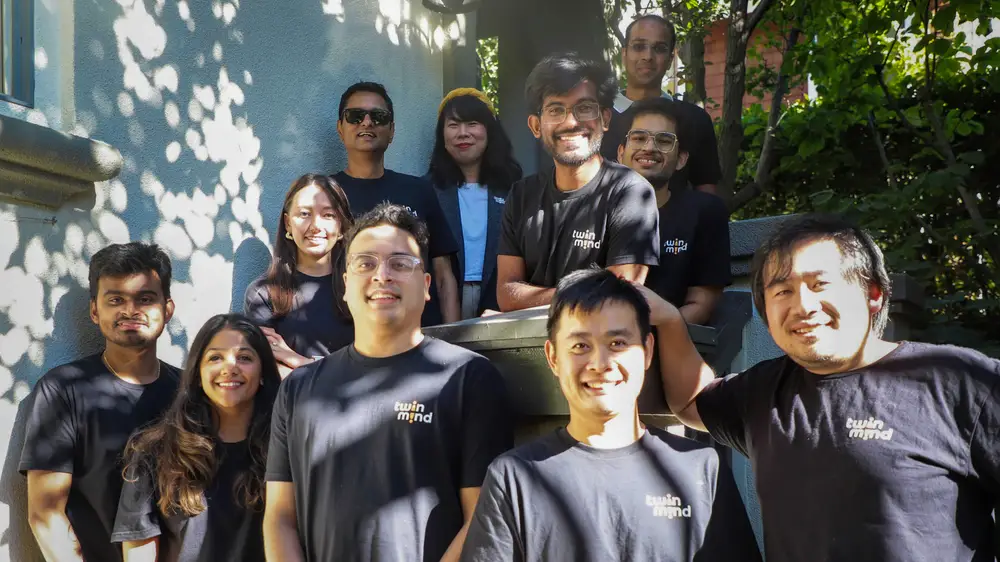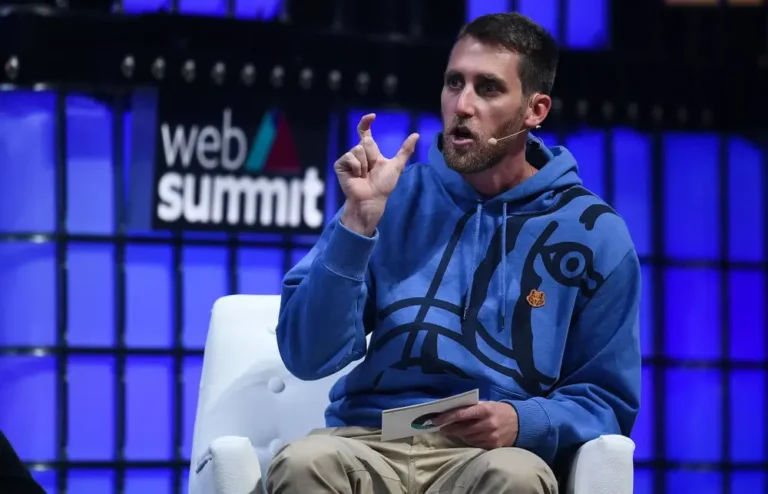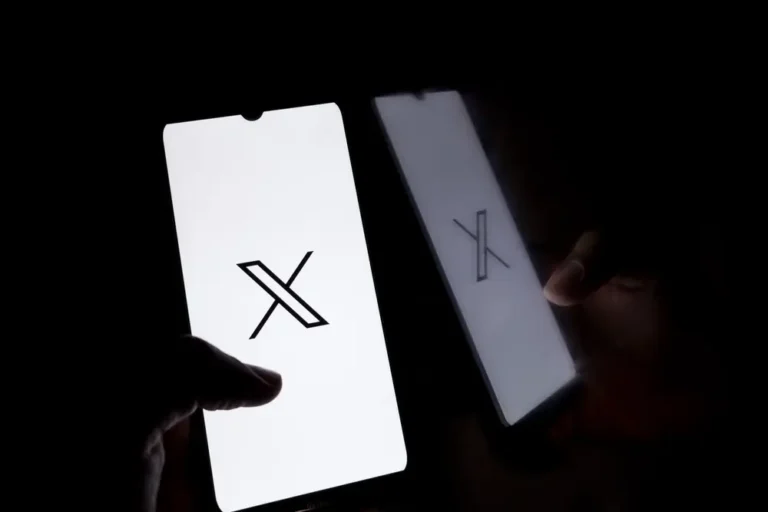Former Google X employees come out of stealth with TwinMind, an AI app that hears and remembers everything about you

TwinMind team.
A startup formed from a handful of former Googlers — specifically Google X, the skunkworks lab that explores sci-fi moonshot ideas — is coming out of stealth.
Named TwinMind, its app functions as an AI assistant that lives in your smartphone and always listens. Its founders like to compare it to Jarvis, the AI designed by Marvel’s Tony Stark: it’s constantly learning what you’re doing and talking about and then using that information to better understand you.
TwinMind founder CEO Daniel George said the company raised over $2.5 million this year from two rounds, the latest giving TwinMind a $30 million post-money valuation. Notable investors to date include Oracle chief AI scientist Dan Roth, Rocketship VC founding partner Anand Rajaraman, and Michael Liou, an early investor in Robinhood and Zapier.
TwinMind is emerging into a competitive market filled with chatbots galore. George told B-17 he believes the idea of an AI assistant that learns and retains information about users will help set TwinMind apart.
While other AI assistants and chatbots, such as Google’s Gemini and OpenAI’s ChatGPT, are improving at memory, it’s still not something they’re very good at.
“If you had your own Jarvis, why would you Google? Why would you ask ChatGPT?” George told B-17. “None of these other tools capture you. None of them understand you. They don’t understand what’s happening in your life.”
TwinMind works like this: It runs in the background of your phone and continually listens. It stores audio in the short term and transcribes it to text, which goes into TwinMind’s memory bank. Then, users can open the app and see a readout of their day, broken down into key moments.
You can also ask it questions. Because TwinMind is learning about you, what you’ve done, and the people you’ve spent your day with, it aims to pull all that information in, allowing you to talk to TwinMind in a way that feels more natural and without having to add heaps of context.
The startup is also rolling out a web browser extension, which (with permission) will see what users are browsing online and capture it in memory. With integrations with calendars and Gmail, users can also ask TwinMind to draft emails. That’s something you can already do with other chatbots, of course, but TwinMind’s edge here is drawing on all that memory it holds of the user.
“You just go in there and, say, write your marketing email. And it knows everything about me, who my co-founders are, what my company is, what we have done before,” said George. “Imagine Grammarly, but instead of correcting grammar, it actually writes it based on all the memories and context.”
Wolverine origins
At Google X, George was the first machine learning scientist on Wolverine, a hearing wearable project first reported on by B-17 in 2021. That project has since spun out into a startup named Iyo.
When ChatGPT launched in late 2022, George was working at JPMorgan with TwinMind cofounder and CTO Sunny Tang, a Google X alum.
He says the two watched as colleagues started using the AI chatbot in meetings. The pair hacked together a crude chatbot of their own that would transcribe meetings and answer questions about what was being said. The idea evolved into the startup ThirdEar. Then they changed the name to TwinMind since someone else had the ThirdEar domain name, and George says the team also felt the name didn’t reflect the visual elements they were building, such as the Chrome extension.
TwinMind does most of its processing locally on the phone and will connect to the cloud if it needs to answer a question or if the user wants an improved AI. TwinMind offers a free app version with a $20-a-month tier for users who want access to more advanced large language models.
Naturally, it raises some questions about privacy. George said that because TwinMind does not capture images and only transcribes the audio, it falls under the same category of assistants as Siri or Alexa.
Perhaps the more impressive feat here will be on the hardware side.
“The main innovation is figuring out how to get this thing running all day, in your pocket, without draining your battery, [and with] all the Apple walled garden stuff,” George said.
He said they figured it out and claims the TwinMind app can run for 12 hours in the background non-stop before running out the battery.
The team has just opened its seed round, and George said they’re looking to raise at least $5 million. The company is also telling potential investors about its future plans, which include making the switch between phone and desktop more seamless so that TwinMind feels more embedded in users’ lives.
George said more than 2,000 early testers have already provided feedback, and the team is launching the app this week on Product Hunt. It will first be available for iPhone and as a Chrome extension, with Android and Mac apps to follow next year.
“We are sure that in a couple of years, everyone is going to have a personalized AI companion that knows their whole life and has access to all of the world’s knowledge on the internet,” George told B-17. “And that would be the way people access information. Not through Google.”






